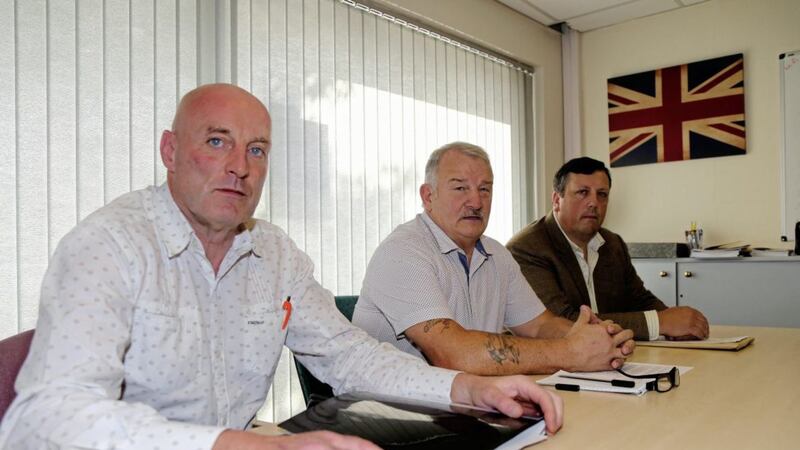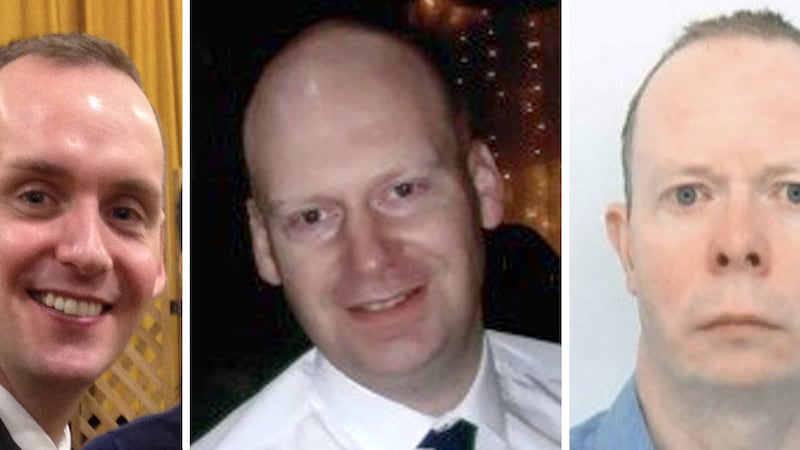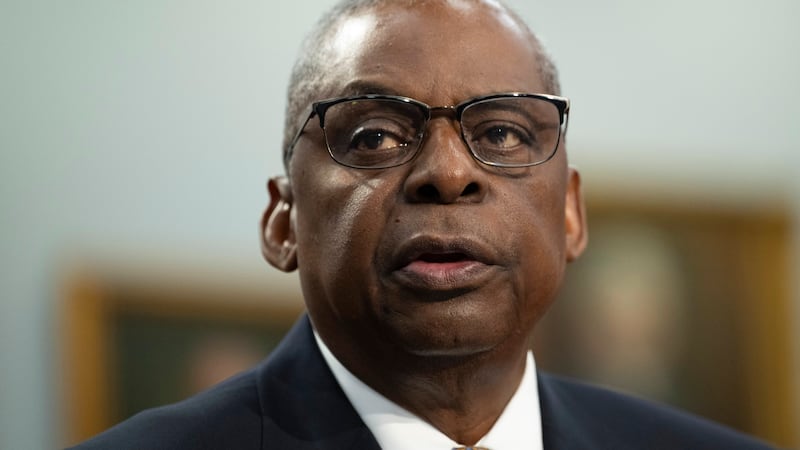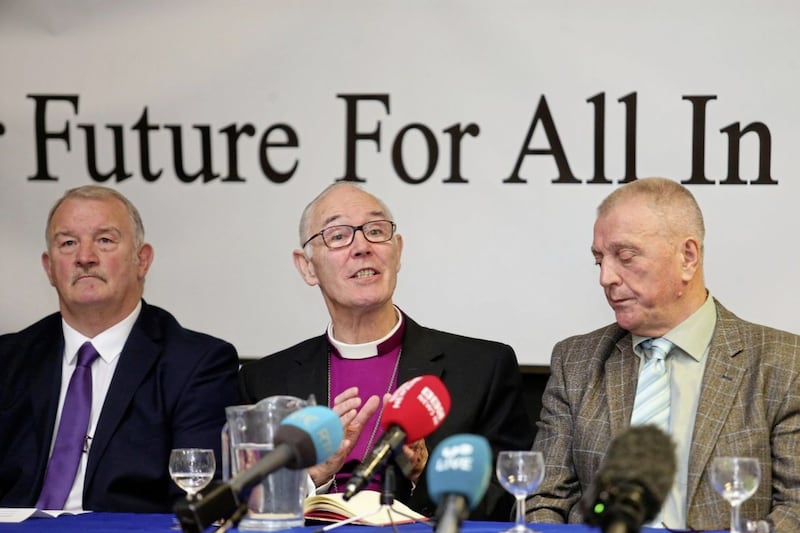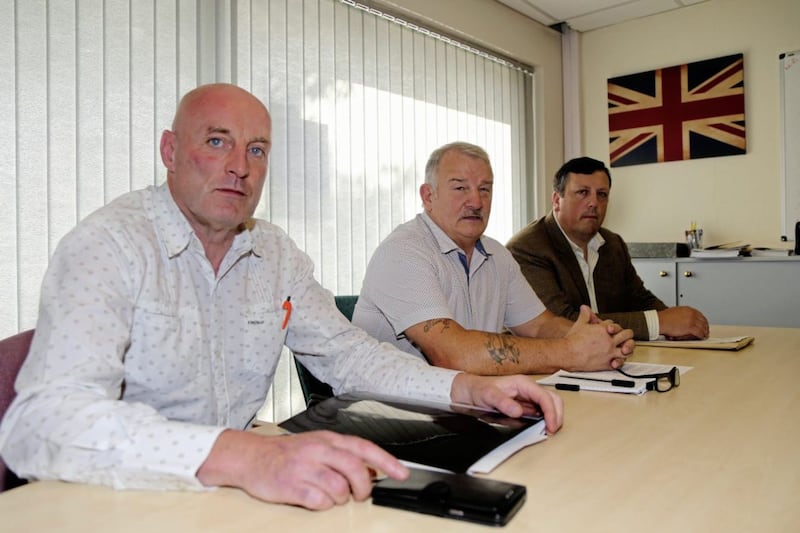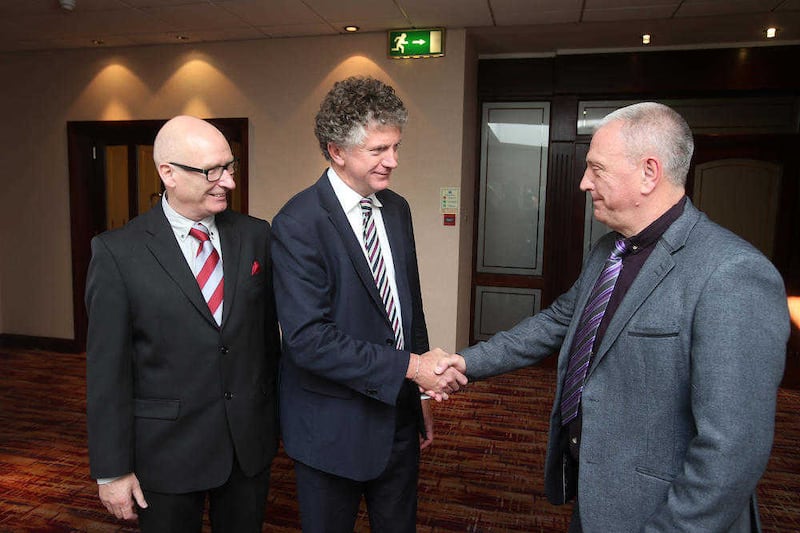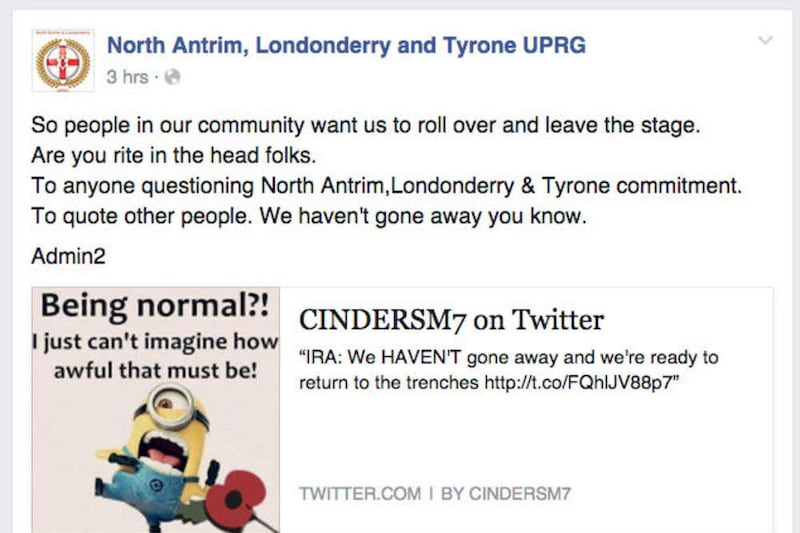The family of a victim of the outlawed Red Hand Commando has called the organisation's plan to be legalised as "outrageously insulting".
Representatives of the paramilitary group, backed by the Loyalist Communities Council (LCC), announced yesterday that a delegation had travelled to London last Wednesday to petition the Home Office to be deproscribed.
This is despite the Home Office playing no role in deproscribing any Northern Ireland based terrorist group, a decision which is instead made by the Secretary of State James Brokenshire though the Northern Ireland Office based in Stormont House.
The NIO have 90 days to consider the application by the RHD.
In a statement the LCC said: "It is further hoped that this course being taken by the Red Hand Commando can lay out a road map for the transformation of loyalist groups in general and that this action might be followed in due course by the other two main loyalist groups."
There are currently 71 international terrorist organisations proscribed with 14 paramilitary groups in Northern Ireland also outlawed.
The RHC, which officially claimed responsibility for 13 murders during the Troubles, is a faction of the UVF which was responsible for over 500 deaths. The group was proscribed in November 1973.
One former member of the organisation is currently facing two sectarian murder charges.
Winston 'Winkie' Rea (66) is charged with the murders of John Devine (37) in July 1989 and the murder of taxi driver John O'Hara in April 1991. The charges are linked information contained in the Boston College oral history project.
Alan Brecknell, who was seven-years-old when his father, Trevor, was killed in a no-warning gun and bomb attack on Donnelly’s Bar in Silverbridge, Co Armagh, just before Christmas 1975, said he could not understand the motivation.
Two other people died in the attack including 14-year-old schoolboy Michael Donnelly, son of the bar's owner and 23-year-old Patsy Donnelly.
Mr Brecknell, who works for the Pat Finucane Centre, said while it was "of course good that loyalists say they are committed to peace and community development, I cannot understand why they want to use the name Red Hand Commando.
"Why would a community worker want to call themselves a 'commando' of any kind?
"Every time bereaved families hear the term 'Red Hand Commando' it reminds them of the decades of pain and grief they have suffered.Why not leave it in the past where, they say, it belongs?", he added.
Michael Monaghan, a son-in-law of murder victim Sean McParland, said to legalise the organisation would be "outrageously insulting" to families such as his.
Mr McParland, 55, was shot by a loyalist gang while babysitting Mr Monaghan's four children at Skegoneill Avenue in north Belfast in February 1994. He was later told by former Police Ombudsman Nuala O'Loan that he was the intended target of the gunmen.
"Our search for answers is ongoing, I can never explain the emotional and physical damage this has caused to my family and others like us and we're meant to be concerned about the future welfare of those responsible without any justice for victims," he added.
Mark Thompson of Relatives for Justice said: "It is absolutely scandalous and adds insult to injury of the hundreds of victims of RHC and UVF.
"The silence from political unionism about this terrorist organisation stands in stark contrast to their position on republican actors", he added.
Kenny Donaldson of Innocent Victims Unites said: "We do not believe that the terror names IRA, UVF/RHC, INLA, UDA etc should ever become legalised, they must be remembered in history for what they were - organisations of oppression with ideologies which encouraged and indeed demanded one neighbour to murder another".
Only two outlawed groups have been deproscribed since the introduction of the legislation, The Mujaheddin e Khalq (MeK) also known as the Peoples’ Mujaheddin of Iran was removed from the list of proscribed groups in June 2008. The International Sikh Youth Federation (ISYF) was removed from the list of proscribed groups in March 2016.
